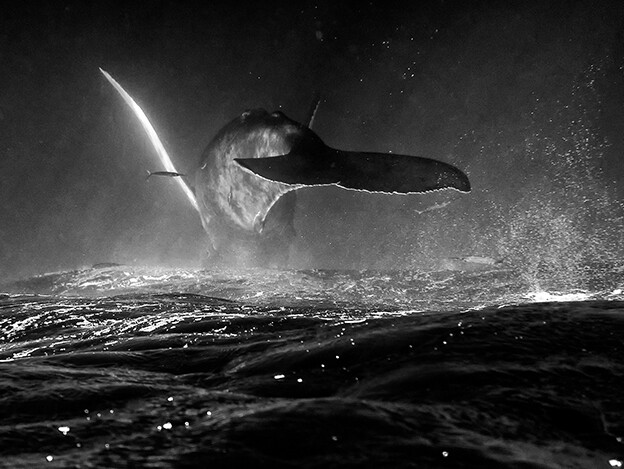There must be pleasure
A review of Alli Warren’s ‘Little Hill’

Little Hill
Little Hill
Little Hill by Alli Warren is a poetry collection that embraces radical, multitudinous forms of love, rendered visible in a number of compelling guises: milkweed, poplar, ocean, inquiry, the portion of the neck where one’s nose fits, anticapitalist philosophy, music, “the whale’s heft, buoyant in dark sea,”[1] community, resonance. The poems refute and reimagine the present with a measured and resolute sonic temperance:
You place your phone atop mine to transfer its charge—is this the communism we
deserve?
Where every eye is a beak
The landlords think themselves princes
And the cops, we know, are deadly
A many-headed wall of soot
I want to tongue the word ab-o-li-tion
I want to learn the lesson of worship from nature (25)
In response to terror, one must not only say, but sensuously feel/tongue, abolition and liberation. The charge needed to achieve a life beyond landlords, cops, and systems of oppression is a charge that is held in relations. Relations (broadly inscribed), to community and to self within community, are the theme of Warren’s collection. The sense of these poems, although not epistolatory, is one of dispatches into the world of the actually living, where money and social control are not the center. The center is something more akin to the omnipresence of our life-transmitting star:
The sun is a clear, persistent, and beckoning door (74)
Warren’s poems reaffirm and reinscribe poems as earthy, sensuous beings, as well as lunar and solar beings, continuously expressing ever-emergent energies, seasons, and experiences of the planet. Love is full of flora, fauna, seeping, spurting, messy, uncontained. Love waits, however impatiently, for the seed to crown the dirt and emerge. Defiantly and boldly, Warren writes,
Fidelity to what? / There must be pleasure. (80)
Rousing ourselves awake with relation, we inhabit the tender animal flesh of ourselves. This excerpt is from the title poem:
Like any animal I need
Something in the morning
To rouse me
The joy of my friends
Against this Fidelity Investments notebook
A gift from my brother
I use for its hard back
To rouse me
To lose myself against image
Against the trading brokerage of choice (79)
Warren leans into what is life-giving, while simultaneously confronting the consumptive, nihilistic death cults that seek to divide and manage human beings (capitalism, racism, compulsory “work life”) and objectify and exploit the natural world in service to — what? — brokerage? The attempt to broker our lives into various insidious forms of servitude and division.
Warren is nuanced and provocative, her lines often searing:
Have you received your perk yet?—flogged unconscious
The present is a tradition
Horror was not made in a day, that’s history
What of its slippages?
What do bankers see when they leap from rooftops
Blinding light of material day thrown across raked earth (15)
The bankers in the lines above briefly experience the world inverted, presented with new value, shimmering ceaselessly with daylight. Slippage is the space of possibility that enables another vision of how our lives might proceed.
Reading the poems aloud also offers an entrance into the world of the body. I noticed that it was difficult to speak quickly or without enunciation. The lines are luscious in vowel, the measure is often more complex than it appears, and Warren, a close listener of music, deftly uses rhythm and beat in ways that feel full in the mouth and create a slowness that is akin to the growth (or decay) of organisms.
Published handsomely by City Lights, the cover art is lush with the emerald diamonds of urban ivy, which immediately meet up with a barrier, a chain-link fence — a fence with a gaping opening in it. A still from artist Joel Gregory’s 2018 film Pastoral, it’s a flawless image for Little Hill. The hole in the chain-link fence depicted on the cover is a clue.
And if I don’t want to be eaten
It is because I don’t want to be turned into shit
Live from little hill
Where the chard crib’s aching for more sunlight (118)
What is persistent in these poems is that there is a way through barriers. The dispatches of Warren’s Little Hill assert that radicalism rooted in earth, love, and community is central.
At some point toward the end of the book I found that Warren had quoted the first line of the first poem of Diane di Prima’s Revolutionary Letters: “The stakes are myself” (105). Only moments before seeing this, I had been thinking of Revolutionary Letters, and considering Little Hill as within the same orbit. Warren’s particular formulation of revolution in poetry is friendly with di Prima’s and also, very much its own:
“The stakes are myself”
I’m more than a breathing apparatus?
A job to lance me to it
The stakes are see-through
See them there? (105)
Little Hill insists that we see these simultaneously transparent and invisible stakes. The stakes are the proprioception of our individual lives, the almost-literal point of view we inhabit based on our social, psychic, emotional, cultural, and bodily conditions. Our relations to each other, animals, the earth, and yes, the cosmos. In Little Hill, these stakes are in poetry and art as well — in our ability to find ways not only to survive, but to reimagine and remake the world.